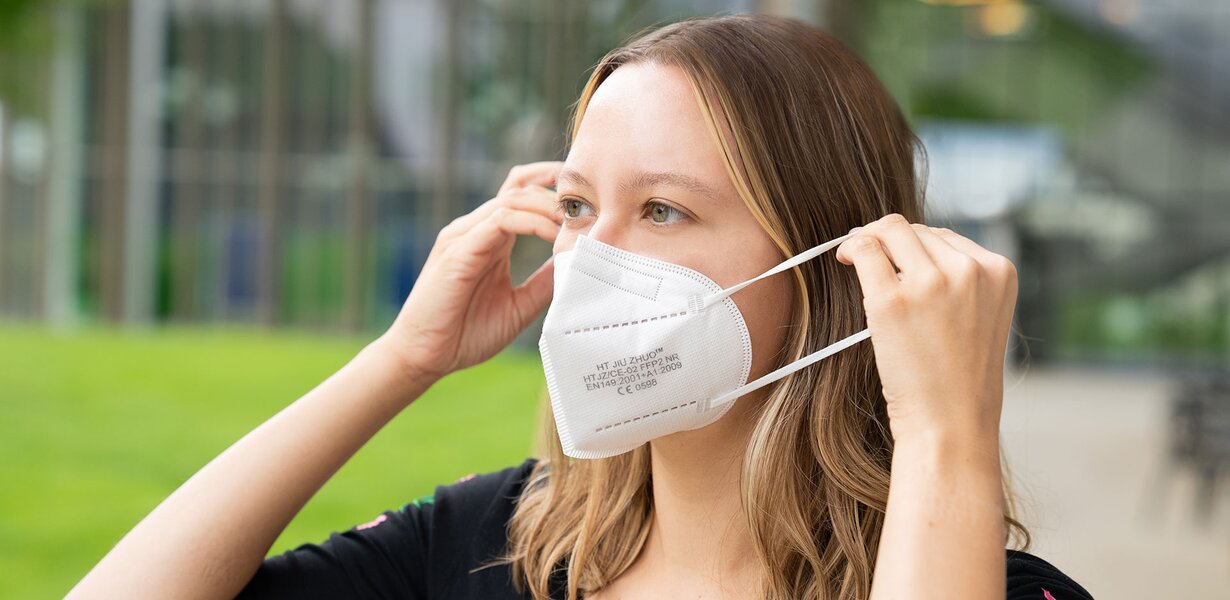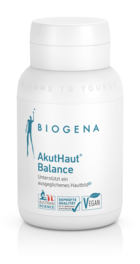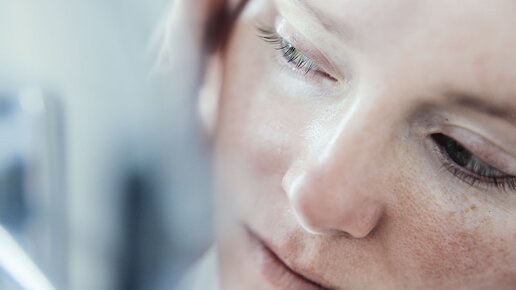The neologism maskne – a combination of “mask” and “acne” – is the new buzz word in the world of cosmetics. While wearing a mask over your mouth and nose prevents coronaviruses and other pathogens from entering the body, the frequent wearing of a mask can affect your skin. We get to the bottom of the new skin phenomenon of maskne and show you how you can care for the resulting skin blemishes.
What is maskne?
Face masks: Two years ago, the mask became one of the most important tools in the fight against the pandemic. In our new coronavirus routine, we tend to always have one to hand. However, constant mask wearing can leave its mark on the skin. Dry patches, imprints, irritation and redness are noticeable on the skin areas where the mask sits and are summed up under the new term maskne.
How does maskne form?
Any mask – regardless of the cut and material – can upset the balance of sensitive facial skin. The following factors play a major role in maskne:
Mechanical forces
The mask rubs on the underlying skin areas and exerts pressure on them. This can lead to micro-cracks in the skin barrier and pave the way for germs and dirt.
Warm, humid climate
Warm, humid, exhaled air collects under the mask and makes the covered areas of the skin sweat more quickly. The increased humidity increases the friction forces caused by the mask; the protective horny layer of the skin swells and can serve as an incubator for bacteria and fungi.
Changed pH value
Wearing a mask can alter the pH value on the skin surface, causing the skin to lose its natural acid protective layer.
Possible outcome: The complexion suffers or breaks out. Particularly sensitive skin usually reacts badly, but even the appearance of beautiful skin can be adversely affected.
Mask hygiene – how to avoid maskne
Contaminated face masks are considered to be important triggers for the development of maskne. It is therefore all the more important to ensure the proper cleaning and handling of your masks:
- Replace your mask with a new or freshly washed mask every day.
- Change the mask whenever it gets damp.Protect your mask from dirt and bacteria. After use, take it home in a small fabric or plastic bag.
- FFP2 masks should be aired for seven days after wearing in dry room air and reused a maximum of five times.
- Fabric masks should be made of 100% cotton and ideally washed with hypoallergenic detergents at 60°C – without fabric softener.
Maskne: The best tips against unwanted skin problems
The skin below the mask should be nourished and cared for, especially when the mask becomes a daily wardrobe essential. The following tips can help your facial skin to stay in shape despite the mask.
- Keep it clean. Gently cleanse your facial skin of dirt, sweat and make-up before and after wearing a mask.
- Moisturise. Use moisturising facial creams that support the natural barrier function of your skin. Apply a thin layer of moisturizer no later than half an hour before wearing the mask. Of course, your skin will also appreciate an adequate fluid intake in the form of drinking water or unsweetened drinks.
- Micronutrients: Complexion à la carte. You can also take good care of your skin from the inside. While creams and lotions only nourish from the outside, micronutrients can provide internal support. In this sense, a balanced nutrition rich in vital substances is an important part of your daily beauty routine. Certain micronutrients – such as zinc and vitamins A and C – help maintain normal skin and thus contribute to a naturally intact skin barrier.
- Go make-up free. Face mask and make-up are not a good combination. Make-up can block pores; colour pigments can get into the skin through microscopically small injuries and cause irritations there. According to the motto "less is more", mask wearers should therefore avoid make-up.
- Get your beauty sleep. Pamper your skin with plenty of sleep and a selected night cream. This allows the sensitive organ to regenerate better at night so you can start the day afresh even in the era of the face mask.
Literature on request from the author.








